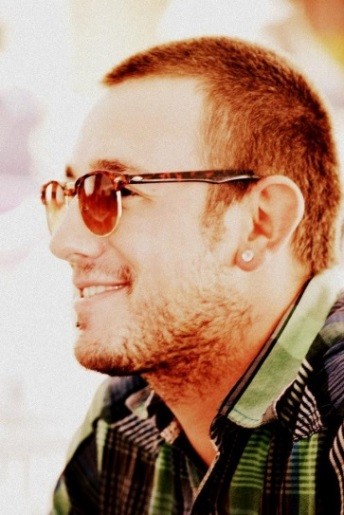
Jan. 2015—It’s not easy standing up for gay rights in a country where the government and most citizens see nothing wrong with a Facebook campaign that incites violence against fellow citizens and “outs” certain women as the “five most wanted lesbians in Sarajevo.”
But a few brave souls at the Sarajevo Open Center in Bosnia and Herzegovina (BiH) responded to the hate with love. They obtained a grant from USAID in 2014 to strengthen lesbian, gay, bisexual and transgender (LGBT) activism in three cities: Banja Luka, Mostar and Tuzla. And in just eight months, they established a regional center in each city to protect LGBT citizens and teach the public about LGBT rights.
This represents a huge success, says Alex Gosto, a 30-year-old activist from Tuzla. “Until now, LGBT activism was centralized in Sarajevo. It was present in the other cities but, unfortunately, it wasn’t very visible …. There were no formal LGBT organizations in any city outside Sarajevo,” he said. “Just gathering young LGBT persons … in BiH in one place is a big thing for our community, especially for young people who had no opportunity to talk openly about their sexual orientation or gender identity.”
The centers are more than safe havens from bigotry and hate. The Sarajevo Open Center organized intensive trainings throughout the year to teach local activists how to advance LGBT rights, particularly how to lobby and advocate in an environment like BiH, where there is a complete lack of will among politicians for implementing human rights laws and conventions.
“It is not easy to be on the margins of the society, but with these kinds of projects and young activists who break the prejudices, we can offer help for the ones who need it, who are not accepted by society, so they can realize that they are not alone in this,” said Ines Pusic, a 23-year-old activist from Mostar. “With these types of projects, we can show society that we exist, and I believe that activism has a bright future in our society,” she said.
After the training, one center organized a local awareness campaign on local radio stations. “The [radio] jingle sent a clear message not only to the general public, but … to the LGBT community in Banja Luka, too, that we are protected by law, that every crime should be reported and that government institutions have an obligation to protect our rights,” said Jasenko Suljetović, president of the Banja Luka Queer Activist Association, the only LGBT organization in the BiH entity of Republika Srpska.
USAID stands at the forefront of the fight for LGBT human rights in BiH. In May 2013 and 2014, USAID illuminated the U.S. Embassy in Sarajevo in rainbow colors as a bold all-night beacon against homophobia. Partnered with USAID’s mission in Kosovo, the BiH mission also co-financed a regional assessment, “Mapping and Needs Assessment of the LGBT Community in Kosovo and BiH,” to identify potential areas for future programming.
“We at USAID are listening, and it is our goal to help you make sure others listen, too,” Steve Majors, director of the USAID/BiH Program Office, told activists in Sarajevo.
The homophobic Facebook page was taken down, but the LGBT community in BiH continues to be marginalized and victimized. LGBT people are humiliated, beaten, thrown out of their homes or blackmailed by colleagues or family members. Prejudice exists in both the public and private spheres. Recent years have seen a number of homophobic incidents, including hostile remarks by public figures and acts of extreme violence.
Progress on LGBT rights in BiH is often a matter of two steps forward, one step back. In late 2014, Suljetović received threats to his life and was forced to go into hiding.
LINKS







Comment
Make a general inquiry or suggest an improvement.